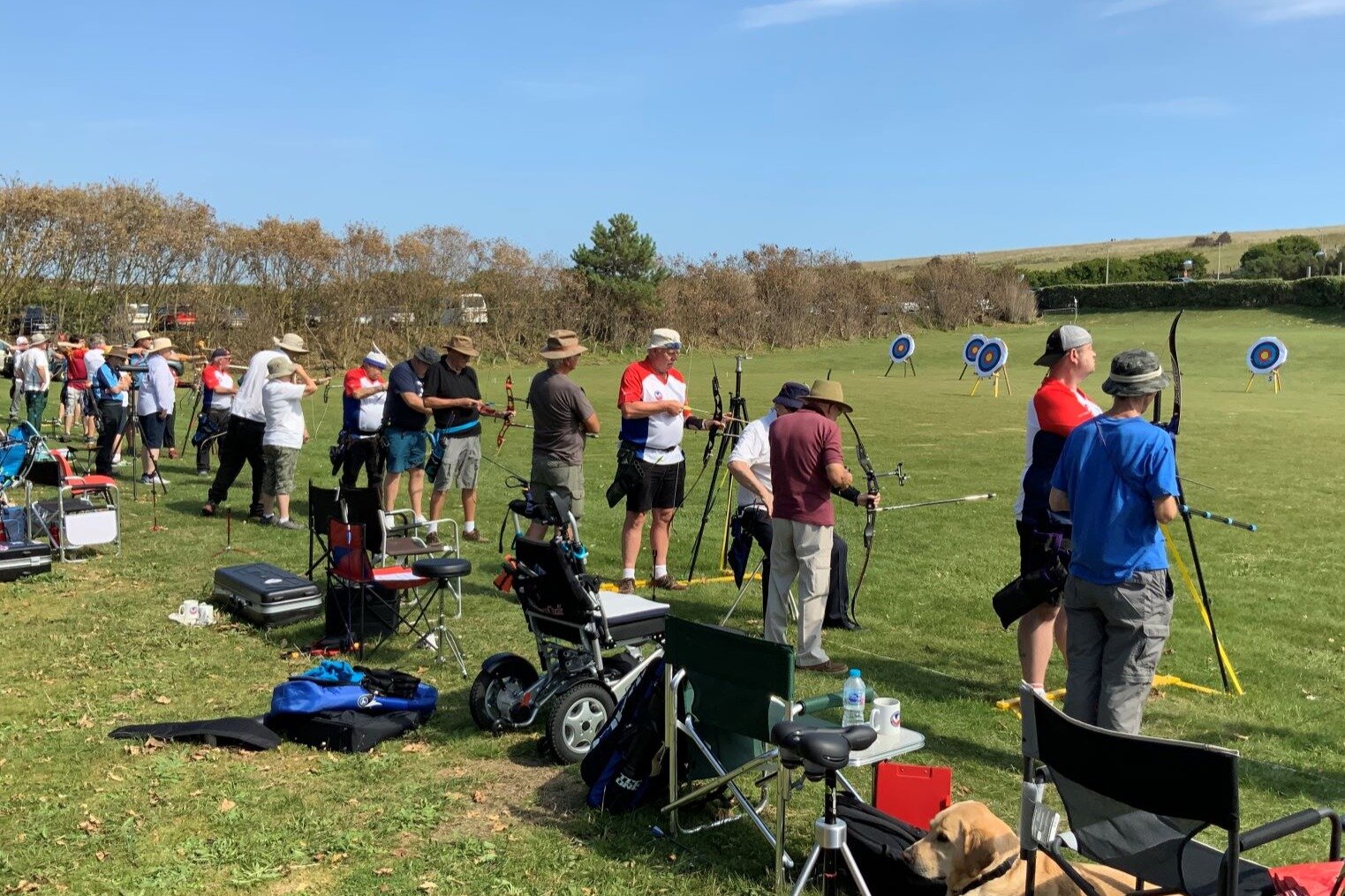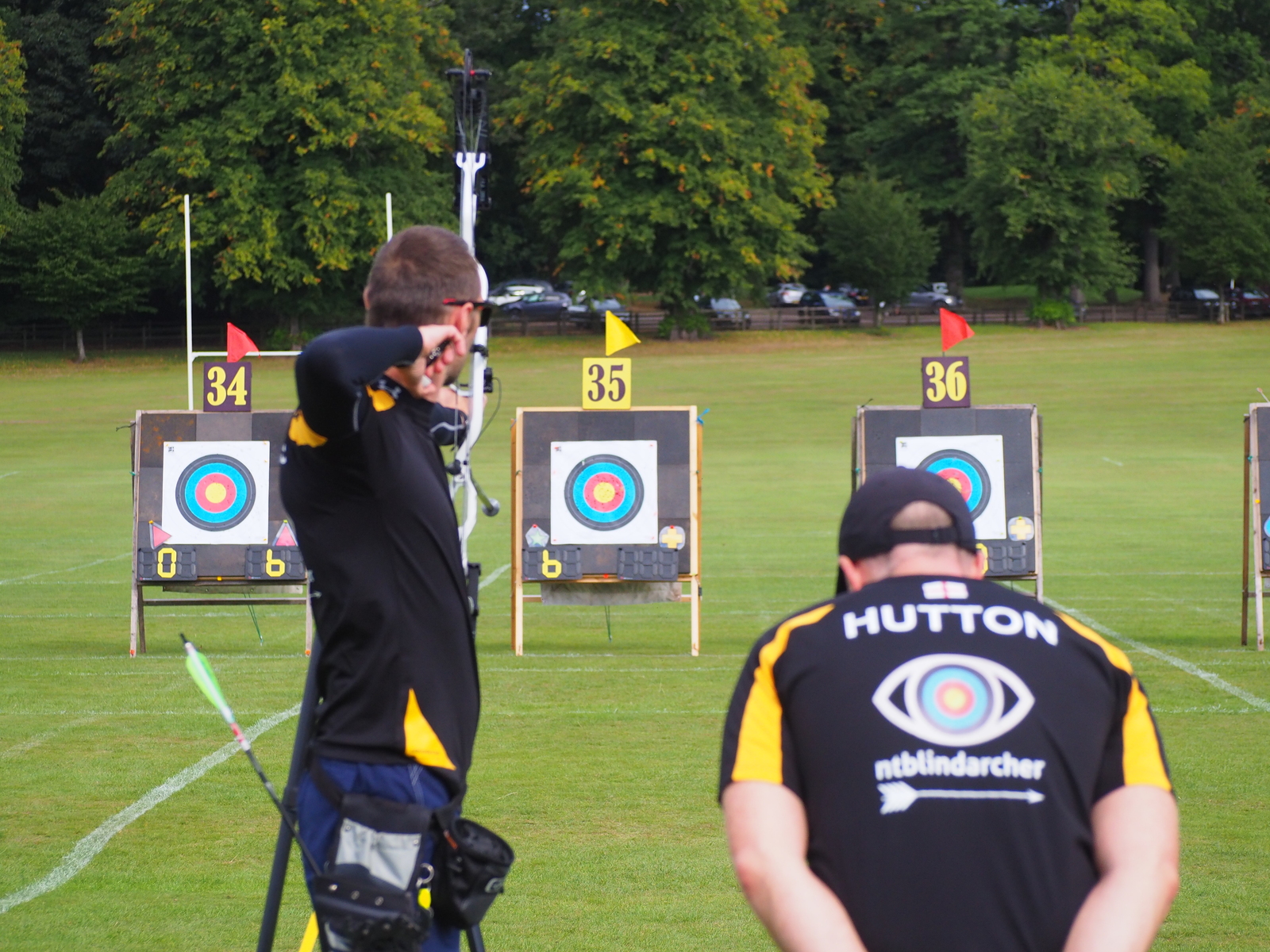Ahead of the International Blind Sport Federation World Games in Birmingham at the end of the month, Sue Habgood from Blind Veterans UK Brighton explains what it means to volunteer as a spotter for VI archers.

Some volunteers have become coaches, which has helped us teach new archers and help the club members to improve their skills. And those who have become volunteer spotters are happy to give their time so that those with visual impairments can take part in a sport which allows archers with disabilities to compete alongside able-bodied archers in competitions within clubs and at national and international events.
Blind Veterans UK Archery Bowmen (formerly St Dunstan's Archery Club) was set up in the 70s at Ovingdean, and from the beginning volunteers have helped with all aspects of archery. The main responsibility of a spotter is safety for all those on the field, checking and informing the VI archer of safety issues. We also can assist the archer with setting up the sighting aid by adjusting it when scoring arrows are not being shot. The spotter may also assist the archer with the tactile sight when arrows are being collected.
Through working with the archers we have made friends with them. When the club meets, spotters often form a close relationship and travel with the archers. Some of us have had the good fortune to go to France, Italy, Czech Republic and Belgium in conjunction with British Blind Sport and IBSA to represent GB. In England we have been with the archers at Buckingham Palace, Windsor Castle, the Tower of London, and have had regular competitions with all three services both at Ovingdean, Sandhurst and other military establishments, which we would never have been to if it were not for the archers.
The archers tell us they could not enjoy the sport without us, but we tell them without their participation we would not have been there either.
As volunteers within the club, we have seen how archery has helped the members find a sport they can take part in, competing as individuals and as part as a team. It has given them an interest and increased their belief in themselves to go out and try new things. We have seen archers that come to us with no confidence in their ability grow throughout their time within the archery club.
We were told by one archer that if he had not come to try archery, he would spend his days sitting at home doing nothing. He finished up representing GB overseas and I was privileged to be his spotter.
Another archer said: “Sue, along with other very dedicated archers, have been volunteering at Blind Veterans UK Brighton for over 20 years. They have coached, supported, travelled around the UK and abroad in pursuit of VI Archery. They have given of their time freely so that blind veterans can take part and compete in archery.”
Volunteering with visually impaired archers has given all those involved new experiences. That sums it up why we volunteer. We have learned so much about visual impairment and its impact on the individual. We’ve developed a close relationship with the archers and understand what it means to be known as archers first then acknowledge the problems that come with being visually impaired.
I can say the experience has enriched my life.
If you wish support the British archers taking part in the ISBA World Games, you can find more information here.
To find out more about what it's like to be a world-class VI archer, listen to our podcast episode with international-medal winning archer, Nick Thomas, by clicking on the link below: